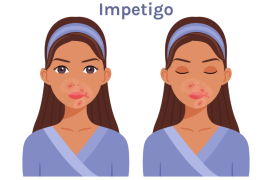Universal precautions refers to infection control measures that all health care workers and child care providers follow with the goal of protecting themselves and the children in their care from disease-producing microorganisms. The concept requires workers to treat all blood and various other bodily fluids as if infected with HIV, hepatitis B virus, and other bloodborne pathogens.
The camp experience includes many activities where children explore nature and interact with others, so both minor and major injuries can be expected. In very rare circumstances, contact with blood or other body fluids can be a means of infection transmission. Thus, universal precautions should be considered an important component of staff and volunteer training and education. All people who work in a camp setting must understand the proper precautions to take to prevent the spread of infection.
The Basic Principles
Following are the basic principles of universal precautions.
Contact with blood must be avoided
If a camper scrapes a knee or cuts himself, camp staff should be sure that no other child touches the blood. In the administration of first aid, there must be a barrier between the person helping the child and the blood. Examples of barriers include towels, a t-shirt, a bandana, bandages, or whatever is accessible. Surgical gloves may not be readily accessible in the outdoors, but should be provided throughout the camp where cleansing may be needed and at every activity area.
All body fluids (except sweat) should be considered potentials for infection
Blood is the major risk for transmission for the serious bloodborne infections like HIV and hepatitis B. Contact with urine and stool should be avoided, because other pathogens (such as CMV or diarrhea causative agents) can be spread via these fluids. Saliva and spit and nasal drainage are major ways respiratory viruses are spread. Tears are not a major source for infection, and sweat is not considered a risk.
Universal Precautions Applies to Everyone
The term "universal precautions" emphasizes that infection control measures apply to everyone, staff and campers. Many persons can harbor infectious agents and be asymptomatic and unaware. Confidentiality mandates that camp staff may not be aware of an individual camper’s diagnosis. Universal precautions assures that all persons are treated equally. Further, the actions of the staff can be powerful teaching tools to teach children that infection prevention measures are easy and expected.
Specific examples of prevention measures are the following.
- Injury involving bleeding: Do not touch the blood; use a barrier to stop the bleeding and cover the injury. Use gloves at the medical facility if significant first aid is indicated (make sure to inquire about latex allergy first).
- Wet bed or loss of stool or vomit: Do not touch urine, stool, or vomit. Clean up child and area as appropriate. If the environment needs cleaning, wear gloves and use a cleaning solution. Put soiled clothes and sheets where others will not touch them.
- Use of restroom: Staff should wash hands with soap for 30 seconds after use of restroom or helping a child use the restroom.
Camps are responsible for training employees and instructing volunteers about universal precautions and for supplying proper equipment. Such equipment should include: gloves in every cabin and activity area, antibacterial soap at all sinks, and a mouth shield with a one-way valve for each lifeguard. It is recommended that all camp staff receive the hepatitis B vaccination (a series of three injections given over six months).
Knowledge, preparation, and attention to proper equipment can help to ensure a safe environment for campers and staff. Applying basic universal precautions will minimize risks of infection transmission and contribute to the wonderful experience of camp for everyone.
Kerry Brown is a child life specialist and an assistant camp directors at Camp John Marc in Meridian, Texas.
Janet Squires, M.D., is the director of the HIV program at Children’s Medical Center of Dallas. She is also the camp doctor for Camp Tecumseh (a weekend camp for families impacted by HIV or AIDS) held at Camp John Marc.
Originally published in the 1999 July/August issue of Camping Magazine.

